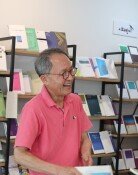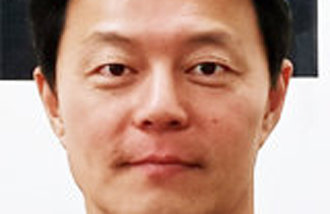A writers refusal of cancer treatment
A writers refusal of cancer treatment
Posted March. 28, 2014 04:22,
I dont know how long I can live but Ill spend the days for writing. Once I get hospitalized, I wont be able to write a book again. The writers who got cancer treatment couldnt write a novel But, dad, youve got to live anyway. If you dont, what do we do? If you dont get treatment and This is a sad conversation between a father and his daughter in A Day of a Man Who Worries about Needless Things Professionally written by writer Bok Geo-il.
Hyeon Yi-lip, the main character in the novel, is an author diagnosed with end-stage cancer. It is Boks autobiographical novel, not a fiction. He was diagnosed with end-stage cancer two and half years ago and has never been to a hospital since then. Of course, he did not get cancer treatment. He wanted to write a novel that he had planned before too late. He survived two and half years. He survived well mysteriously.
After being diagnosed with cancer, he wrote even more. He completed three sequels of A Traveler in History, a three-volume science fiction that he wrote in 1991, last spring. He kept his promise that he made about two decades ago, fighting cancer. He wrote three more books A Day of a Man Who Worries about Needless Things Professionally, Life before My Body, and On the Land Abandoned Even by God. He says that his life has become more intense than before as he thinks it is his last chance.
Cancer treatment devastates not only ones body but also ones mind. Some end-stage liver cancer patients long for a liver transplant, their last hope, but end up dying without getting it. Imagine what it would have been like if Bok focused on cancer treatment like ordinary people. Long time ago, our grandfathers and grandmothers died at home being surrounded by their family. Today, patients die painfully wearing a respiratory mask and needles on their arms as a result of the advancement of medicine. Boks choice makes us think a lot about which one is closer to death with dignity.
Editorial Writer Choi Young-hae (yhchoi65@donga.com)







